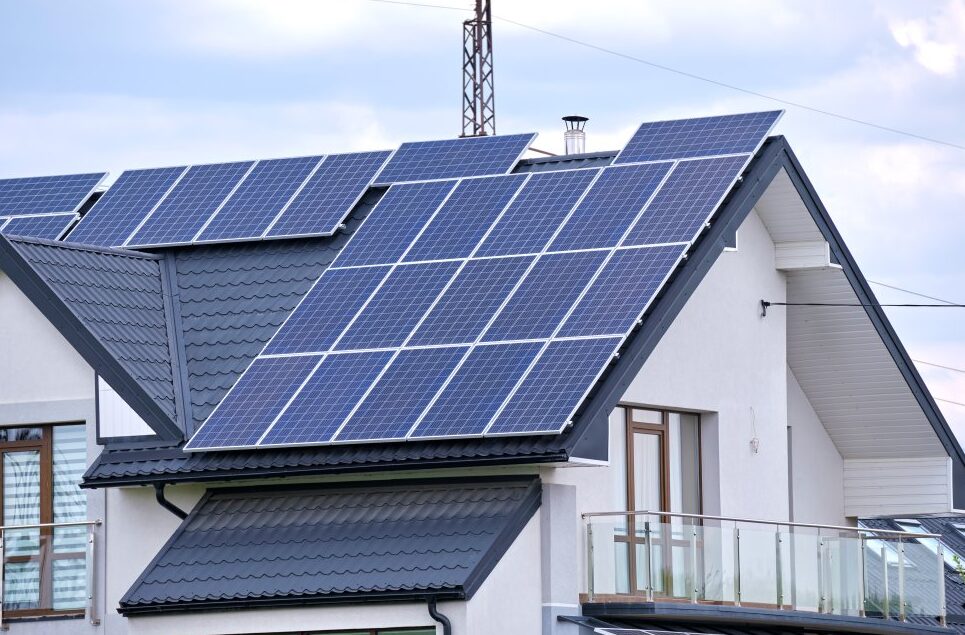One of the primary benefits of residential solar is the significant reduction in monthly energy costs. By installing a solar electric system, homeowners can decrease their reliance on traditional electricity sources and reduce their monthly utility bills. Several factors can impact the amount of savings, including overall electricity consumption, solar energy system size, and local electricity rates. Additionally, a solar electric system provides a long-term, low-risk investment opportunity for homeowners looking to reduce their monthly utility bills. By investing in residential solar, homeowners can enjoy significant cost savings and increased financial stability over time.
Residential solar also eliminates the need for fossil fuels, which is a significant benefit for both homeowners and the environment. Solar energy is a clean and renewable energy source that does not release harmful emissions into the atmosphere. By going solar, homeowners can reduce the demand for fossil fuels, limit greenhouse gas emissions, and shrink their own carbon footprint. This not only benefits the environment but also helps homeowners to become more energy independent and self-sufficient.
Another benefit of residential solar is the increased control over energy usage that it provides. Solar panels allow homeowners to generate their own electricity, providing them with greater control over their energy usage and costs. By producing their own electricity, homeowners can avoid fluctuations in electricity prices and reduce their reliance on the grid. Additionally, solar panels can increase the value of a home, making it a smart long-term investment for homeowners looking to increase their property value. Overall, residential solar offers homeowners a variety of benefits, including reduced energy costs, environmental sustainability, and increased control over their energy usage.
Increased home value
One of the primary benefits of installing residential solar panels is the increased property value they provide. According to a study by Zillow, solar installations can increase a home’s resale value by up to $5,911 for each kilowatt of solar panels installed. The National Renewable Energy Laboratory (NREL) also found that for every $1 saved on energy bills, a home’s value increases by $20. This means that not only will homeowners save money on their energy bills, but they will also see a significant return on investment when it comes time to sell their home. However, it is important to note that the addition of a solar panel system may also increase property taxes.
Another advantage of residential solar is the ability to sell excess energy back to the grid. This is made possible through net metering programs, which allow homeowners to receive credits on their energy bills for the excess energy their solar panels generate. In addition to saving money on energy bills, homeowners can potentially earn money through these programs. This not only provides financial benefits but also encourages the growth of renewable energy sources and reduces reliance on non-renewable energy sources.
Installing residential solar panels can also have a positive impact on home appraisals. According to the Appraisal Journal, for every $1 reduction in yearly energy bills, a home’s value increases by $20. This means that not only will homeowners save money on their energy bills, but they will also see an increase in their home’s appraised value. Furthermore, solar panels can provide energy security during power outages, allowing homeowners to keep their lights on and appliances running. Overall, residential solar panels provide numerous benefits, including increased property value, the ability to sell energy back to the grid, and a positive impact on home appraisals.
Environmental benefits
One of the primary benefits of residential solar is the positive impact it has on the environment. Solar energy is a clean and renewable energy source that significantly reduces greenhouse gas emissions and other dangerous pollutants such as CO2. By generating electricity with solar power instead of fossil fuels, individuals can dramatically reduce their carbon footprint and limit the demand for non-renewable energy sources. In fact, every kilowatt-hour of solar generated can reduce greenhouse gas emissions and air pollution, making it an effective way to combat climate change. Incorporating residential solar into one’s home not only benefits the individual but also contributes to a healthier planet.

Another environmental benefit of residential solar is the decreased reliance on fossil fuels. By using solar energy, individuals can reduce their dependence on non-renewable energy sources and help to eliminate harmful emissions from burning fossil fuels. Additionally, solar energy is a sustainable alternative to fossil fuels, which have a limited lifespan. This means that individuals can continue to rely on solar energy for years to come, without contributing to the depletion of non-renewable resources.
Finally, residential solar can have a positive impact on the environment by reducing water pollution. Solar energy systems do not require any water to generate electricity, unlike traditional power plants that rely on water for cooling purposes. This means that using solar energy can help to conserve water resources and reduce the amount of water pollution caused by power plants. By choosing to install residential solar, individuals can contribute to a cleaner and healthier environment for themselves and future generations.
Government incentives and rebates
One of the primary benefits of residential solar is the availability of government incentives and rebates. Federal and state incentives, such as the Federal Solar Tax Credit and Net Energy Metering, can significantly reduce the cost of solar installation for homeowners. The Solar Investment Tax Credit (ITC) allows homeowners to subtract 30% of the cost of solar installation from their federal taxes. Additionally, electric utility rebates and other incentives can further reduce the total installation costs of a solar system. These incentives make residential solar increasingly affordable for homeowners.
Tax credits for solar installation are another significant benefit of residential solar. The ITC, also known as the Residential Clean Energy Credit, allows homeowners to receive up to 30% of the cost of solar installation back in federal tax credits. This can significantly lower the overall cost of solar installation for homeowners. The Residential Clean Energy Credit can also help bridge the gap in financing for homeowners looking to make their solar power dreams a reality.
Rebates for residential solar installation are yet another benefit for homeowners. The Self-Generation Incentive Program (SGIP) offers rebates to residential homes and businesses that install a solar battery with a rooftop panel system. These rebates can vary based on location and other factors, but they can significantly reduce the cost of solar installation for homeowners. Other incentives, such as up-front rebates, can also increase the return on investment for a solar panel system. Overall, the availability of government incentives and rebates makes residential solar an increasingly attractive option for homeowners looking to save money and reduce their carbon footprint.
Longterm cost savings
One of the primary benefits of residential solar is the long-term financial savings it offers. Solar panels provide an opportunity for homeowners to reduce their monthly utility bills and make a low-risk, long-term investment. By generating their own electricity, homeowners can significantly lower their energy costs and reduce their reliance on traditional energy sources. This financial benefit is further amplified by tax incentives and rebates offered by the government and utility companies. The most obvious financial benefit of solar power is that it can lower your utility bills, making it a simple equation for homeowners to see the financial benefits.
In addition to lower energy costs, residential solar provides homeowners with predictable energy costs. With solar panels, homeowners can generate their own electricity and avoid the unpredictable fluctuations in energy prices from traditional energy sources. This helps homeowners avoid peak energy pricing and provides them with greater control over their energy bills. Furthermore, solar panels offer protection against rising energy costs, which is a major concern for homeowners who want to avoid the financial burden of increasing energy prices.
Residential solar not only provides financial benefits but also contributes to a cleaner environment. By switching to renewable energy sources, homeowners can reduce their carbon footprint and help mitigate the impacts of climate change. Additionally, solar panels increase the value of homes and provide long-term savings. With solar panels becoming increasingly affordable and accessible, homeowners can benefit from the advantages of solar energy while enjoying the freedom and independence that comes with generating their own electricity.
